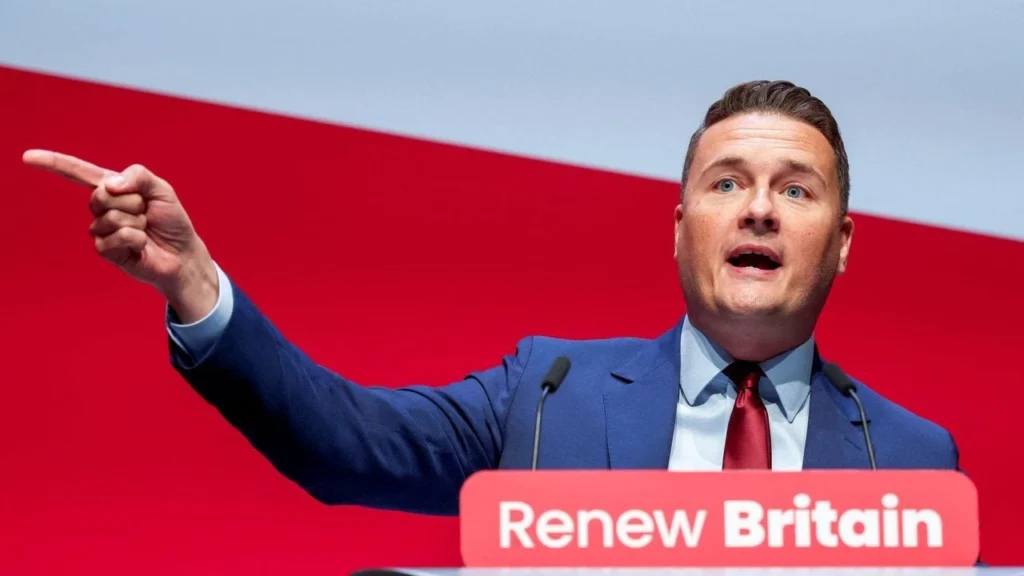Of all the policy areas and topics covered on the fringe of this year’s Labour Conference, health was perhaps the most prominent.
Labour knows that after fourteen years of Tory rule, improving the National Health Service is crucial to securing Labour’s prospect of re-election when the next general election comes and it is the one policy area where Labour remains consistently ahead of Reform. The voters trust Labour over Reform with the future of the NHS and they have genuine and understandable concerns over Reform’s position on the NHS being free at the point of use.
Many senior Reform figures, including Nigel Farage, are on record advocating for insurance style healthcare models like those in the United States. These models of healthcare provision are deeply unpopular with most of the British electorate and Reform’s position on health is a weakness that Labour can exploit – but only if it delivers the transformation of the NHS that the public so desperately need.
Labour’s challenge is delivering this transformation amid tight budgets and harshening global economic conditions that impact directly on the government’s ability to invest. Despite this challenge, the Health Secretary, Wes Streeting, has set an ambitious 10-year health plan which has caused debate around the deliverability of that plan and whether the priorities in place are the right priorities for the nation’s health at this stage.
The first year of NHS under Labour
Since Labour won in 2024, the government has enjoyed some success in improving the NHS. A record extra five million NHS appointments delivered and the axing of NHS England to save on costs for duplicated services demonstrating its ability to take tough decisions to drive efficiency.
The government increased NHS spending by 3.8% per year and allocated extra funds for care. The government also announced its 10-year plan focusing on digitalisation, increasing community care and a focus on prevention. All in all, the government has made a good start and has clearly set itself an ambitious workplan to transform the NHS.
The public’s expectations aren’t too grand, in fact, the demands are simple: they want to see their GP in person, in a reasonable time, and receive good treatment.
When their elderly or vulnerable relatives are in hospital, they want them to be treated in a clean, caring environment, receiving the best treatment possible. They want medicine to arrive on time and to have good communication between patients and professionals.
If the government can provide the people with these core elements to healthcare, then there is no reason why Labour should not remain well ahead of Reform on health, and no reason why Labour should not be able to, successfully on its health record, combat Reform at the next election.
The risks of the Nanny State
There are some risks in Labour’s approach. While motivated by good intentions, the government could easily be distracted by smaller issues and commit considerable political capital to delivering them at the expense of delivering patient outcomes before the next election.
The Health Secretary has stated that prevention is a core objective of his NHS strategy, and of course he’s right that it is important. But with the NHS in the state that it’s in, and with a public impatient for change, he needs a laser like focus on delivering the basics – more GP appointments, shorter waiting lists, and the estate upgrades promised and not delivered by so many Health Secretaries in the last decade.
In an era where Reform is surging in the polls on a fiercely anti-establishment line, Labour faces another danger – being accused of nanny-statism. The party risks becoming entangled in policy debates that give Reform easy opportunities to attack the government as overbearing or paternalistic. These accusations are more easily avoided if Labour delivers on the basics.
Lord Glasman recently sounded the alarm on this, saying Labour needs to avoid being seen as part of the ‘Lanyard Class’, by which he means the finger wagging ‘do as we say, not as we do’ types – don’t drink, smoke, vape or eat anything with sugar in it, unless you’re in a Westminster pub at Party Conference of course. In the current climate, there is a risk that Reform could capitalise by playing into the public perception that Labour is a dull, finger wagging party, as compared to the Pint and Fag image of Nigel Farage.
Now, we know all the above are important issues, but with limited time to implement demonstrable outcomes before the next election and a growing threat from the right better to focus on the public’s immediate priorities.
In government, Ministers have a short time to drive change and improve services. Therefore, it is essential that Ministers pick the battles that have the greatest benefit to the greatest number of people. Labour may be down in the polls, but the public will come back to us if we focus on what really matters and stop getting distracted by niche causes or trying to tell people what they can eat, drink, or do. Health is our best attack on Reform, the last thing we should do is hand them the opportunity to turn it against us. The message for Labour on health is simple, big delivery wins big votes.




